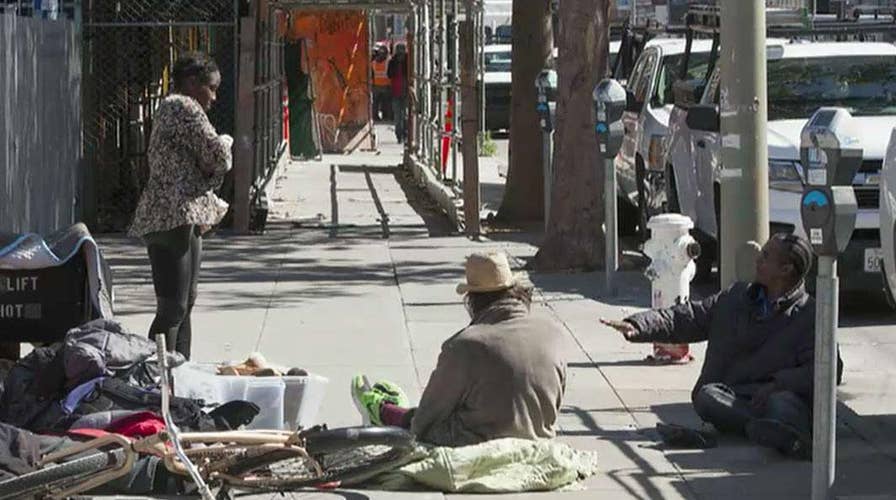Indiana attorney general exposes what he says is the real reason behind California's homeless crisis
Indiana Attorney General Curtis Hill says California's Proposition 47 has had unintended consequences.
Indiana's attorney general said Monday that California’s increasing homeless crisis is due to the state softening penalties for drug offenses and other crimes.
Curtis Hill told “Fox & Friends” that the increased homeless population has been an unintended consequence of Proposition 47, a measure that reduced some felonies to misdemeanors.
"It became an invitation for those who engage in illegal drug use or minor offenses because the penalties were just not there and as a result you see people who now have no place to go and it’s drawing in the homeless groups that are creating unsanitary conditions and threatening behavior and really intolerable conditions in cities all over America," said Hill.
Hill outlined his issues with the Reduced Penalties for Some Crimes Initiative, which passed in the state’s General Assembly on June 2017.
“It was intended to reduce criminal behavior, criminal conduct, or reduce penalties for particular conduct that was described as non-important, non-serious, non-threatening and the result was supposed to be more compassion for those who commit so-called non-violent offenses.”
Hill went on to say, “In cities like San Francisco, Los Angeles, or even Washington D.C. ,where I was there last week and on my way to dinner, I witnessed some individuals shooting up on the sidewalk in plain sight. That is no way to have a city where we want families and businesses to flourish.”
Hill also wrote an op-ed for Fox News, arguing that, "The best correctional models are those that hold offenders accountable for their crimes but also help improve their character by addressing social, emotional, spiritual, educational and familial issues through targeted services.”
CLICK HERE FOR THE FOX NEWS APP
Hill also said that India implements a system that treats incarcerated people with mental health, drug, and alcohol issues to reduce recidivism. He says it is “one of the things we need to be doing all over the country," along with providing employers with incentives to give "second-chance opportunities" to some individuals.


